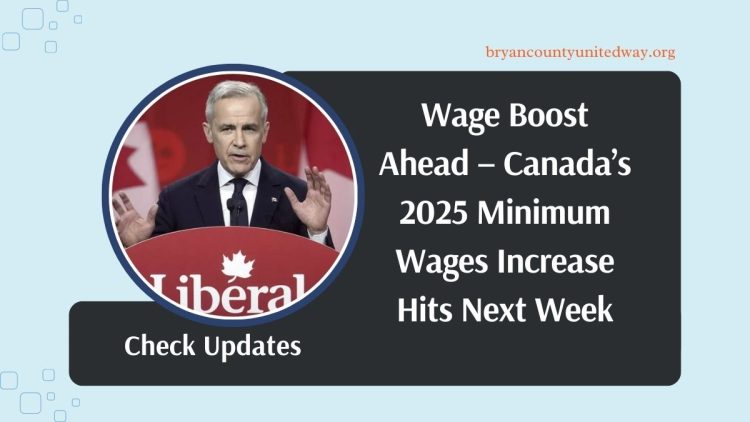Good news for workers in federally regulated sectors—a minimum wage increase is on the way! Starting April 1, 2025, the federal minimum wage in Canada will rise from $17.30 to $17.75 per hour, a 2.6% boost aimed at helping workers keep up with rising living costs.
Let’s dive into what this increase means for employees and employers across the country.
Who Does the Federal Minimum Wages Apply To?
The federal minimum wage applies to employees working in federally regulated industries, such as:
- Banking
- Postal and courier services
- Air transportation
- Telecommunications
- Rail and interprovincial transportation
If you’re employed in one of these industries, this wage increase will apply to you starting next week. However, if the provincial or territorial minimum wage in your area is higher than the federal rate, the higher wage will apply.
Details of the 2025 Wage Increase
The federal minimum wages increase is designed to keep up with inflation and protect the purchasing power of Canadian workers. Here’s a quick summary of the new federal minimum wages:
| Effective Date | Previous Rate | New Rate | Percentage Increase |
|---|---|---|---|
| April 1, 2025 | $17.30 | $17.75 | 2.6% |
The increase ensures that wage levels remain in line with the cost of living, which has been steadily rising in recent years.
Provincial and Territorial Comparison
Here’s how the new federal minimum wages compares to other provincial and territorial rates as of 2025:
| Province/Territory | Minimum Wage (2025) |
|---|---|
| Alberta | $15.00 |
| British Columbia | $17.85 (June 2025) |
| Manitoba | $16.00 (Oct 2025) |
| Ontario | $17.60 (Oct 2025) |
| Quebec | $16.10 (May 2025) |
| Nova Scotia | $15.70 (Apr 2025) |
| Newfoundland & Labrador | $16.00 (Apr 2025) |
| Yukon | $17.94 (Apr 2025) |
| Nunavut | $19.00 |
If you’re working in a province where the minimum wages exceeds the federal rate, your employer must pay the higher provincial rate.
What It Means for Workers and Employers
For Workers:
- More money in your pocket starting April 1.
- Better ability to cope with housing, food, and transport costs.
- Motivation to stay in federally regulated jobs that offer consistent wage growth.
For Employers:
- Need to adjust payroll systems before April 1.
- Possible increases in operating costs, but also improved employee retention and satisfaction.
- Compliance with new federal wage standards is mandatory.
The 2025 increase in Canada’s federal minimum wage to $17.75 per hour marks a positive shift for many Canadian workers. This adjustment, which takes effect on April 1, 2025, supports employees in keeping up with the cost of living while providing consistency across federally regulated industries.
Employers and workers alike should prepare for the change and ensure that all payroll systems and employment agreements reflect the new rate. This is more than just a number—it’s a step toward greater economic stability for thousands across the country.
FAQs
Who qualifies for the federal minimum wage increase?
Employees working in federally regulated industries like banking, telecom, and transportation will receive the updated minimum wages.
What if my province has a higher minimum wage than the federal rate?
You’ll be paid the higher of the two. Employers must follow the rate most beneficial to the employee.
Will the minimum wage go up again in 2026?
Yes, the federal minimum wage is reviewed annually and may rise again next year based on inflation and economic conditions.
